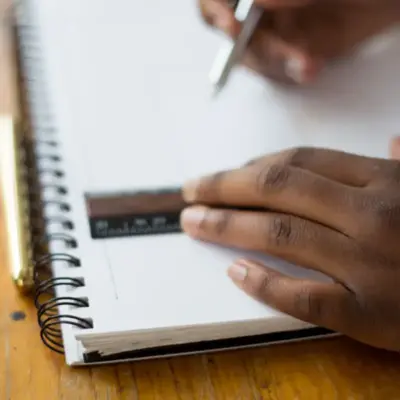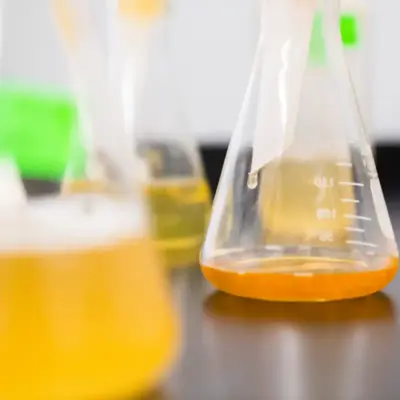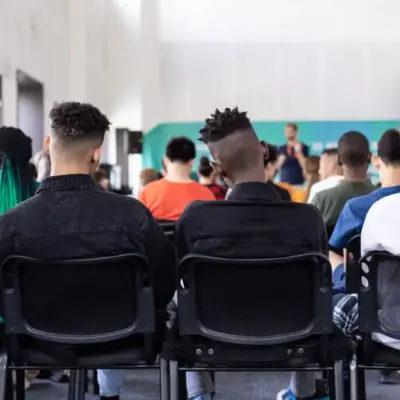
Five ways to bring feminism into the high school classroom
What does a feminist education look like to you? We’d like to think it includes teaching students about justice, encouraging critical thinking about power and inequality, and giving young people tools that they can use to help themselves and others to live happily and freely.
With the addition of a social justice elective for grade 12 students and the work being done to indigenize curriculums, schools in BC have made some progress towards building an education system that honours diverse histories and perspectives.
However, there’s still work to be done! Here are our ideas for additions and alternatives to the status quo, broken down into five common subject areas for secondary school students.

English class
The traditional Western literary canon is dominated by white men. Actively incorporating works written by authors who offer a different understanding of the world is a great way to encourage a broader and more inclusive understanding of whose perspectives matter – that is to say, everyone’s!
Our suggestions: Lee Maracle, Terese Marie Mailhot, Gloria Anzaldúa, Nalo Hopkinson, Ocean Vuong, Eden Robinson, Ntozake Shange, Hiromi Goto, Suzette Mayr, Nancy Lee, or take your pick from this awesome list!
Questions to take it a step further:
- Who decides what books we read in English classes? How do they make those decisions? Is that fair?
- How has the English language been used as a tool of colonization?
- How do English speakers have language privilege?
[P]lace names are often a reflection of violent and relatively recent history.
French class
The bête noire (pet peeve) of many students in Canada is the mental gymnastics required to understand the grammatical gender of various words in French. Why is a group of only men ils, a group of only women elles, but a group of nine women and one man ils? And what if some people in the group are neither women nor men?
Our suggestions: Learning about ol, ul, iel, and ille or inclusive writing
Questions to take it a step further:
- Why is it that the masculine ils is used for a mixed group? Is the masculine ils neutral? Is the feminine elles neutral? Why or why not?
- What is the history of French colonization outside of Canada – in Asia, Africa, and the Caribbean?
- How do the legacies of colonization continue to impact these places today?

Social studies/history class
Geography is integral to our understandings of human history. But place names are often a reflection of violent and relatively recent history. Learning the ways that Indigenous people referred to the land is an important step we can take in decolonizing our knowledge and recognizing their stewardship of these places since time immemorial.
Our suggestions: Native-Land.ca is a useful starting point to answer the question, “Whose land am I on?” Once you have this knowledge, you could also learn more about the history of those communities and how they referred to and interacted with the land.
Questions to take it a step further:
- Have you heard of cə̓snaʔəm?
- What are the names of some cities or towns near you? How did they get that particular name?
- What power do place names have? Who has the power to name?
[S]cience can seem like a neutral and apolitical collection of facts about how the world works. However, scientific knowledge does have a distinct history.
P.E./Gym class
We all learn that it’s important to eat nutritious food and exercise during gym and health classes. We also receive a lot of messaging from media and culture about what kinds of bodies are best, along with injunctions to mold our bodies into these often inaccessible ideals. It can be hard to know what it really means to be “healthy.”
Our suggestions: Learning about diet culture can help us unpack some of the messages we get from media and culture, and can help us be more thoughtful about how we can best care for ourselves.
Questions to take it a step further:
- What are some ways to re-frame conversations around health to not be so focused on weight and body shape/size?
- Is health something that is equally possible for everyone? What kinds of barriers might people face in trying to access medical care or buy healthy food?

Science class
Sometimes, science can seem like a neutral and apolitical collection of facts about how the world works. However, scientific knowledge does have a distinct history. Sometimes, scientific or medical knowledge has come at the expense and harm of people in exceptionally violent and inhumane circumstances.
Our suggestion: Learning about the history of Western gynecology (warning for graphic and disturbing content)
Questions to take it a step further:
- What kinds of responsibilities do doctors or scientists have and what ethical guidelines should they follow when investigating human health questions?
- How many famous sciences can you name off the top of your head? How many of them are white men? Why do you think this is?
- What are Indigenous approaches to science we can learn from?

The above is a non-exhaustive list. How else can we start or continue these important conversations in education? What are your ideas to bring feminism into the classroom?
Cecile Afable is a Filipino-American feminist from Massachusetts. Prior to joining West Coast LEAF as our Youth Workshop Coordinator, Cecile spent several years teaching at Lycée Marcel Gimond in Aubenas, France, and researching wrongful conviction for the Schuster Institute for Investigative Journalism.